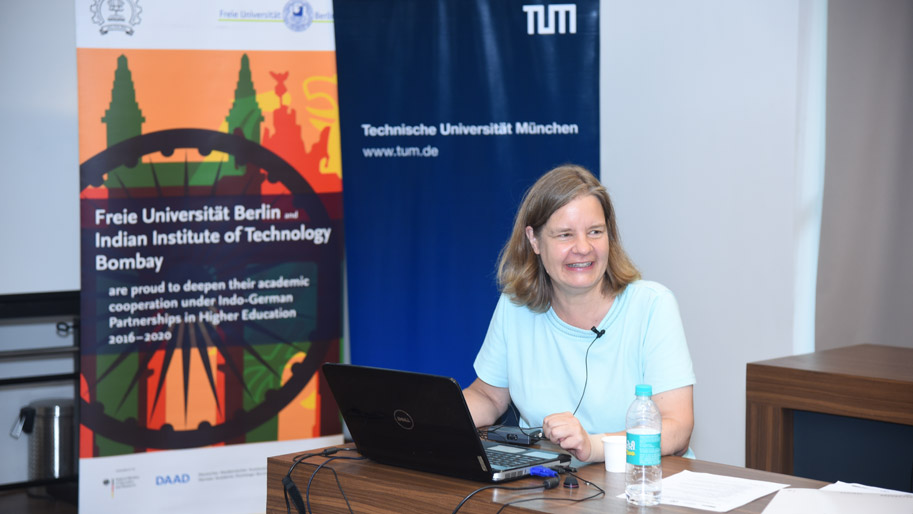Joint workshop on “Democracy, Devolution and Climate Policy” organized by IIT Bombay, Freie Universität Berlin – Liaison Office New Delhi and TUM Mumbai
 © DWIH New Delhi
© DWIH New Delhi
From October 2nd to 4th 2018, a group of international experts came together at IIT Bombay to present their current research on the topic of “Democracy, Devolution and Climate Policy.”
The two and a half day academic workshop, co-funded by the DWIH New Delhi, established new links between senior experts as well as young researchers from India and Germany, who engaged in a lively academic debate on decentralized approaches and coping mechanisms in the context of anthropogenic climate change. India being one of the worst affected countries already, Mumbai – and particularly IIT Bombay with its newly established Climate Studies program – proved to be the ideal place for this timely discussion. The hosts and main speakers, Prof. N.C. Narayanan and Prof. D. Parthasarathy, both from IIT Bombay, together with their German counterparts Dr. Kirsten Jörgensen, Freie Universität Berlin, and Prof. Miranda Schreurs, TUM, conceptualized this workshop as an exchange of knowledge out of which new research collaborations are likely to emerge. An initial presentation on the DWIH New Delhi served to raise awareness amongst the experts about the opportunities offered by this unique German institution.
The experts and speakers came from a variety of eminent institutions such as IIT Bombay, Tata Institute of Social Sciences, Technical University of Munich, Freie Universität Berlin, IIT Madras, Pondicherry University, University of Maryland as well as from think-tanks and government organizations. The event started with the insight that the reality of global climate change cannot be denied any longer and that beyond mitigation strategies, serious efforts for climate change adaptation need to be taken at a local level. The event built upon the strong relationship between TUM and IIT Bombay as well as the ongoing DAAD- and UGC-funded partnership between Freie Universität Berlin and IIT Bombay under the “Indo-German Partnerships in Higher Education 2016-2020”. It merged the competencies of German and Indian institutions in the field of research on environmental sustainability – an aspect that was further emphasized by the involvement of Dr. Avilash Roul from the Indo-German Center for Sustainability (IGCS) at IIT Madras.
Prof. Miranda Schreurs, head of the Chair of Environmental and Climate Policy at the TUM School of Governance presented “The Win-Wins of Local Climate Policy and Technological and Social Innovation”. In her talk, Prof. Schreurs examined how social and technological innovations at the local level that help mitigate climate change can have multiple positive benefits. As a next step in the collaboration, a follow-up workshop and a speakers’ series in India and Germany are envisaged for next year to further intensify the established ties. Focusing on India’s states as actors, Dr. Jörgensen added the perspective of political science to the topic. She is currently editing a book on environmental policy in India which will have Prof. NC Narayanan as a co-author.
A field trip to the Coastal and Marine Biodiversity Centre, organized by Prof. Parthasarathy, gave the participants of the workshop a firsthand impression of the impact of climate change on the sensitive ecosystem of the Mumbai mangroves and the successful implementation of local policies. The event benefitted from the support given by DWIH New Delhi and served to establish robust networks between German and Indian scientific communities in the subject area of climate change. Due to the involvement of PhD-students and young researchers from India and Germany, it is likely that such networks grow even stronger in future.
Date: Tuesday, October 02, 2018 to Thursday, October 04, 2018
Venue: IIT Bombay
